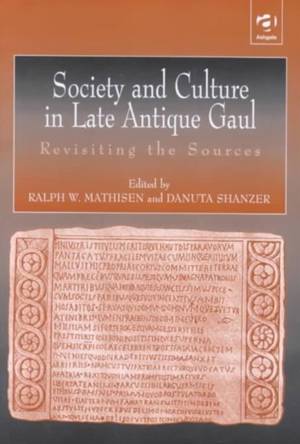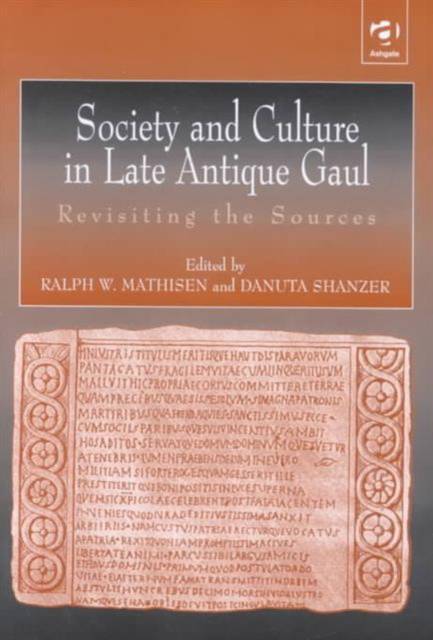
- Afhalen na 1 uur in een winkel met voorraad
- Gratis thuislevering in België vanaf € 30
- Ruim aanbod met 7 miljoen producten
- Afhalen na 1 uur in een winkel met voorraad
- Gratis thuislevering in België vanaf € 30
- Ruim aanbod met 7 miljoen producten
Zoeken
Society and Culture in Late Antique Gaul
Revisiting the Sources
Ralph Mathisen, Danuta Shanzer
Hardcover | Engels
€ 195,95
+ 391 punten
Uitvoering
Omschrijving
Late Roman Gaul is often seen either from a classical Roman perspective as an imperial province in decay and under constant threat from barbarian invasion or settlement, or from the medieval one, as the cradle of modern France and Germany. Standard texts and "moments" have emerged and been canonized in the scholarship on the period, be it Gaul aflame in 407 or the much-disputed baptism of Clovis in 496/508. This volume avoids such stereotypes. It brings together state-of-the-art work in archaeology, literary, social, and religious history, philology, philosophy, epigraphy, and numismatics not only to examine under-used and new sources for the period, but also critically to reexamine a few of the old standards. This will provide a fresh view of various more unusual aspects of late Roman Gaul, and also, it is hoped, serve as a model for ways of interpreting the late Roman sources for other areas, times, and contexts.
Specificaties
Betrokkenen
- Auteur(s):
- Uitgeverij:
Inhoud
- Aantal bladzijden:
- 342
- Taal:
- Engels
Eigenschappen
- Productcode (EAN):
- 9780754606246
- Verschijningsdatum:
- 17/12/2001
- Uitvoering:
- Hardcover
- Formaat:
- Genaaid
- Afmetingen:
- 156 mm x 233 mm
- Gewicht:
- 664 g

Alleen bij Standaard Boekhandel
+ 391 punten op je klantenkaart van Standaard Boekhandel
Beoordelingen
We publiceren alleen reviews die voldoen aan de voorwaarden voor reviews. Bekijk onze voorwaarden voor reviews.











